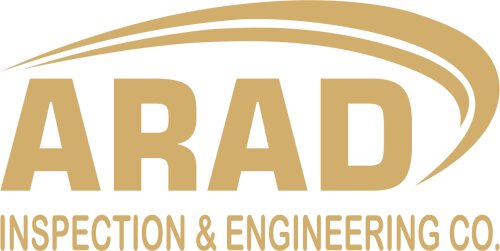Best Mining Law Lawyers in Iran
Share your needs with us, get contacted by law firms.
Free. Takes 2 min.
Or refine your search by selecting a city:
List of the best lawyers in Iran
About Mining Law in Iran
Mining Law in Iran governs the exploration, extraction, and management of mineral resources within the country. Iran possesses vast mineral reserves including copper, iron ore, zinc, gold, and other strategic minerals that are vital to the nation's economy. The Mining Law, as outlined primarily by the Islamic Republic of Iran Mining Code, establishes the legal framework for granting mining rights, licensing, the obligations of miners, environmental protections, taxation, and foreign investment participation in Iran's mining sector. This legal framework aims to regulate responsible resource extraction while balancing economic growth and environmental preservation.
Why You May Need a Lawyer
Navigating Iran's Mining Law is complex due to the detailed regulations and strict government oversight. You may need a lawyer in several situations, such as:
- Applying for mining exploration or exploitation licenses
- Negotiating joint ventures and partnership agreements with local or foreign partners
- Understanding taxation, royalties, and profit-sharing obligations
- Ensuring compliance with environmental and safety standards
- Handling disputes over mining rights or land use with other parties
- Addressing expropriation or government intervention concerns
- Resolving labor or employment issues within mining operations
- Adhering to foreign investment requirements and restrictions
A lawyer with expertise in mining law will help you avoid costly mistakes, protect your business, and ensure efficient operations in compliance with Iranian law.
Local Laws Overview
Key aspects of local laws relevant to Mining Law in Iran include:
- The Mining Code sets out the main legal structure, including classifications for different types of minerals and methods of extraction.
- Licenses for exploration, extraction, and processing are issued by the Ministry of Industry, Mine and Trade. Strict application procedures and eligibility requirements apply.
- Mining operations must comply with national environmental regulations and obtain necessary clearances from relevant authorities.
- The state retains ownership of all mineral resources, but private and foreign entities can obtain rights to explore and exploit certain minerals under specific conditions.
- Mining contracts often involve obligations for local employment, technology transfer, and contribution to local infrastructure.
- There are specific tax regimes, royalties, and fees imposed on mining activities. Compliance with financial commitments is closely monitored.
- Foreign investment is allowed in the mining sector, subject to restrictions and requirements set by the Foreign Investment Promotion and Protection Act (FIPPA).
- Disputes may be resolved through local courts or, in some cases, international arbitration, depending on the agreement.
Frequently Asked Questions
What is the process for obtaining a mining license in Iran?
Applicants must submit detailed geological and financial plans to the Ministry of Industry, Mine and Trade. The ministry reviews the application and, if approved, issues exploration or extraction licenses after meeting all legal and technical requirements.
Can foreign companies invest in Iranian mining projects?
Yes, foreign investment is possible under the FIPPA framework. Foreign companies can participate through joint ventures, direct investments, or contractual arrangements, subject to government approval.
Are there specific environmental regulations for mining activities?
Yes, mining projects must comply with national environmental standards and often require environmental impact assessments and ongoing monitoring during operations.
What taxes apply to mining companies in Iran?
Mining companies are subject to income tax, royalties, and special fees. Tax rates and obligations can vary based on the type of mineral and the location of the mine.
How are mining disputes typically resolved?
Disputes may be addressed through negotiation, local courts, or arbitration depending on the terms of the mining contract and the nature of the issue.
What rights do license holders have over the mined resources?
While the state owns all mineral resources, license holders have the right to exploit and profit from the minerals extracted in accordance with their license terms.
Is it possible to transfer a mining license to another party?
Transfers are possible but require approval from the Ministry of Industry, Mine and Trade, and the new party must meet all eligibility criteria.
Are there any local employment requirements for mining companies?
Yes, mining companies are encouraged and sometimes required to employ local workers and invest in local community development as part of their license terms.
How long do mining licenses typically last?
License durations vary by type: exploration licenses are usually issued for up to three years, while extraction licenses can be valid for longer periods, sometimes up to 25 years, with potential for renewal.
What happens if a mining company breaches its license obligations?
Breaches can result in fines, suspension, or revocation of the license. Serious violations may also lead to prosecution or blacklisting from future mining activities.
Additional Resources
For further information and assistance regarding mining law in Iran, consider the following resources:
- Ministry of Industry, Mine and Trade - The main regulatory authority overseeing mining activities.
- Geological Survey of Iran - Offers geological data and maps essential for exploration and research.
- Iranian Mining Engineering Organization - Professional association for licensed engineers and consultants in the mining sector.
- Iran Chamber of Commerce, Industries, Mines and Agriculture - Facilitates business networking and advocacy in the mining industry.
- Legal consultancies and law firms specializing in mining and natural resources law within Iran.
Next Steps
If you need legal assistance in the field of mining law in Iran, the following steps are recommended:
- Clearly identify the legal issue or business objective related to your mining activities.
- Gather all relevant documentation, such as current licenses, contracts, project plans, and correspondence with authorities.
- Consult with a qualified lawyer or legal consultant who has expertise in Iranian mining law and relevant regulations.
- If necessary, reach out to the Ministry of Industry, Mine and Trade or the Iranian Mining Engineering Organization for guidance on regulatory requirements and application procedures.
- Work with your legal advisor to prepare and submit any required documents, negotiate agreements, or address disputes.
- Regularly monitor compliance with all legal, tax, and environmental obligations to prevent future problems.
Legal guidance is essential for success in Iran's complex mining sector. Taking the right steps will help protect your rights, ensure compliance, and maximize the potential of your mining projects.
Lawzana helps you find the best lawyers and law firms in Iran through a curated and pre-screened list of qualified legal professionals. Our platform offers rankings and detailed profiles of attorneys and law firms, allowing you to compare based on practice areas, including Mining Law, experience, and client feedback.
Each profile includes a description of the firm's areas of practice, client reviews, team members and partners, year of establishment, spoken languages, office locations, contact information, social media presence, and any published articles or resources. Most firms on our platform speak English and are experienced in both local and international legal matters.
Get a quote from top-rated law firms in Iran — quickly, securely, and without unnecessary hassle.
Disclaimer:
The information provided on this page is for general informational purposes only and does not constitute legal advice. While we strive to ensure the accuracy and relevance of the content, legal information may change over time, and interpretations of the law can vary. You should always consult with a qualified legal professional for advice specific to your situation.
We disclaim all liability for actions taken or not taken based on the content of this page. If you believe any information is incorrect or outdated, please contact us, and we will review and update it where appropriate.
Browse mining law law firms by city in Iran
Refine your search by selecting a city.















